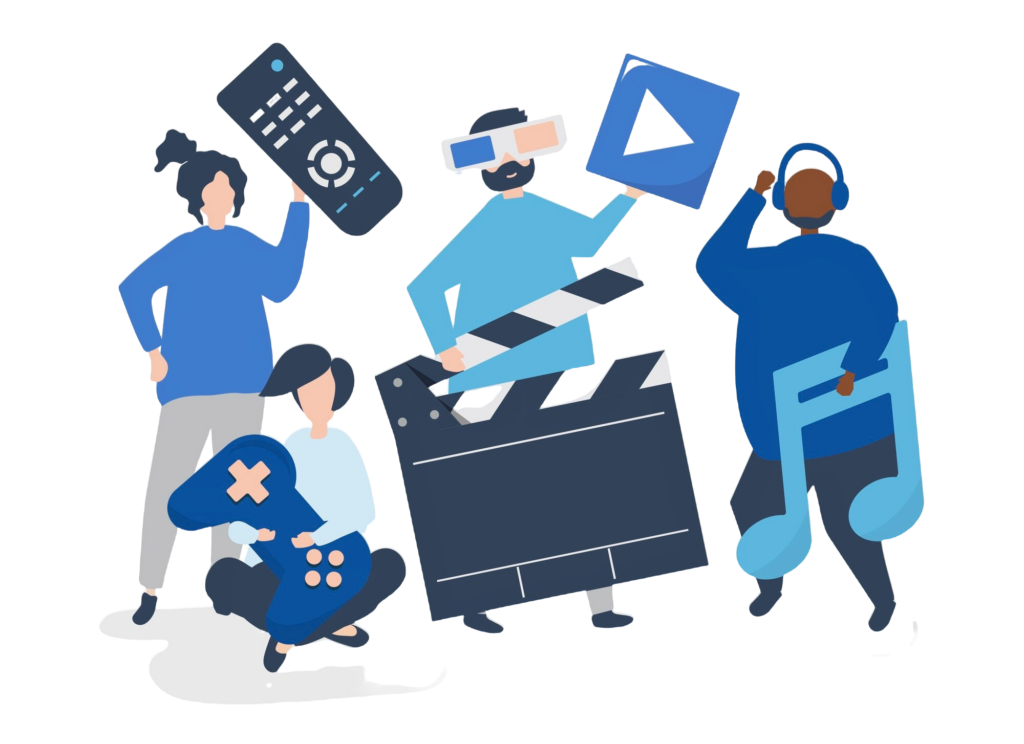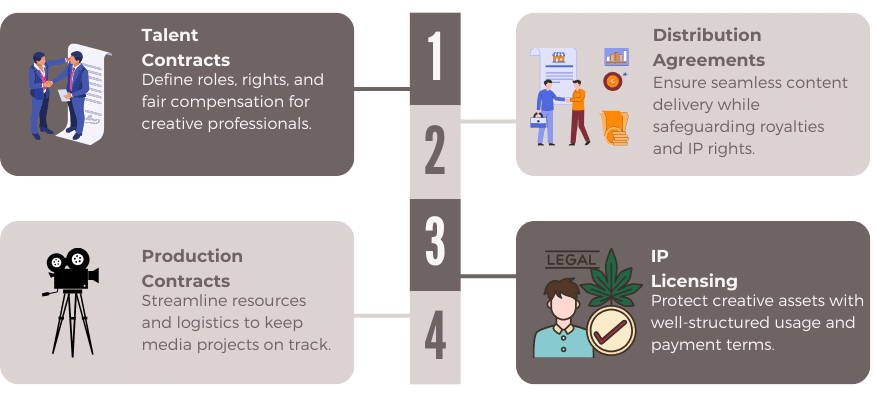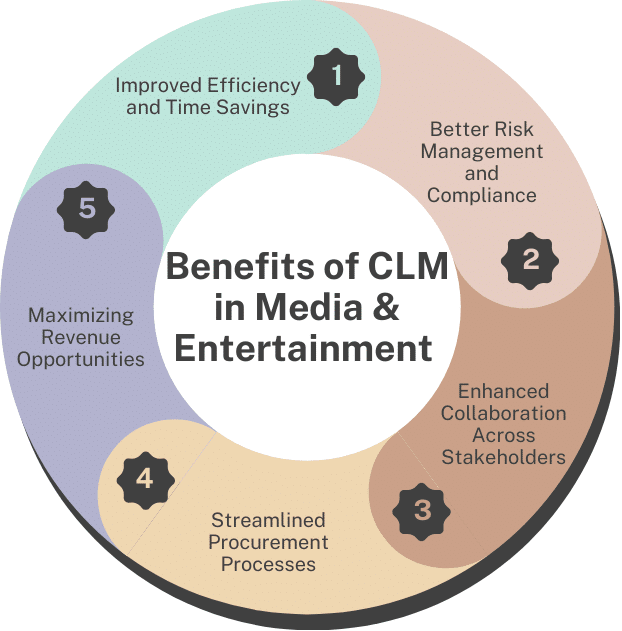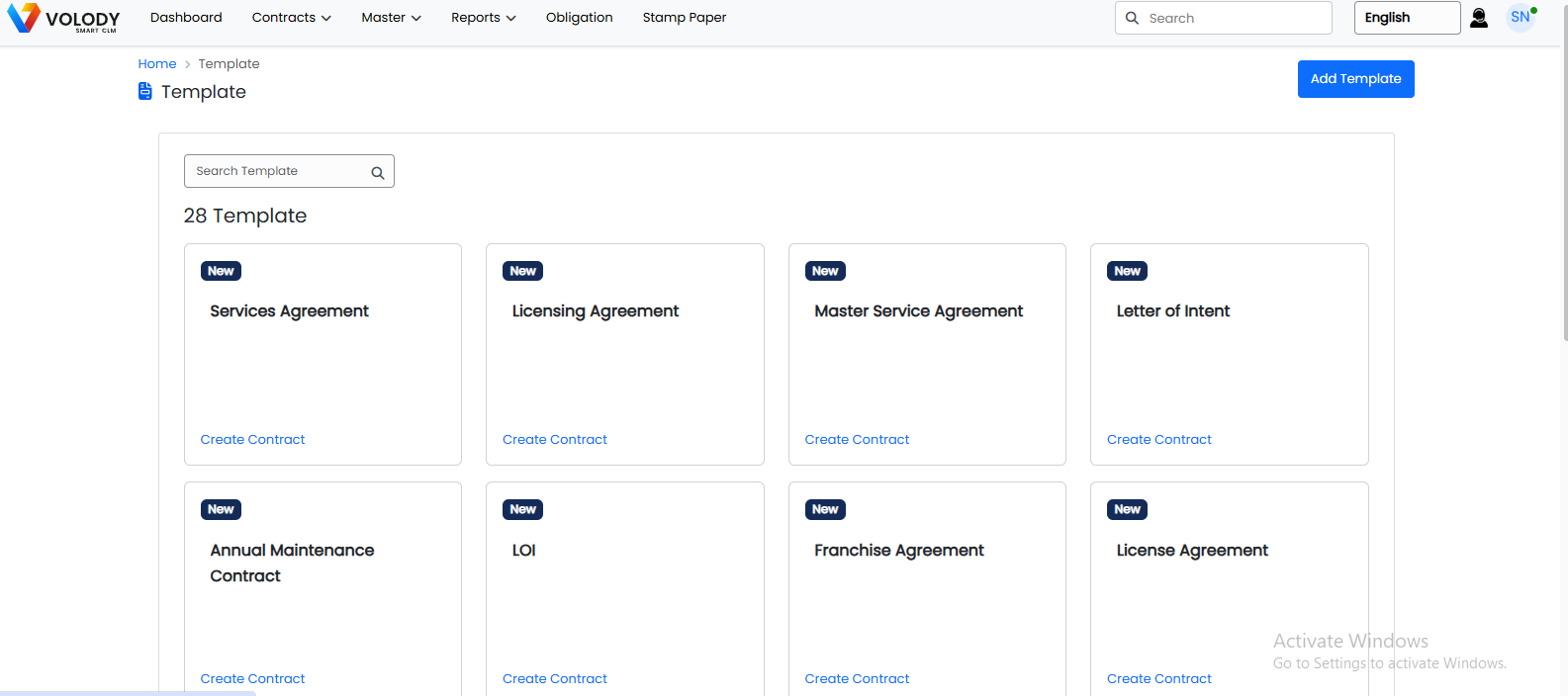Contract Management Challenges in Media & Entertainment Industry
The media and entertainment industry faces several unique contract management challenges due to its dynamic nature, high volume of collaborations, and complex legal and financial arrangements. Here are some of the most significant challenges:
1. Managing a High Volume of Contracts
Challenge: In the media and entertainment industry, companies handle many contracts, such as licensing, service agreements, and vendor contracts. Managing all of these contracts manually using tools like emails or desktop apps can be overwhelming and lead to mistakes. Without a central system to track important details, it’s easy to miss key dates and obligations.
Impact: Without an efficient system, companies risk missing renewals, facing legal issues, or losing money. Using a contract management solution like Salesforce or Microsoft helps centralize all contracts, automate reminders, and track milestones more easily. Machine learning tools can help predict potential issues and improve workflow efficiency.
2. Intellectual Property (IP) Protection
Challenge: Intellectual property is crucial in the media industry. Contracts must clearly outline rights, ownership, and royalties. However, if the terms are unclear or if tracking tools are inadequate, it’s harder to protect these assets and avoid conflicts. Without proper contract authoring and monitoring tools, managing IP becomes a challenge.
Impact: Poorly defined IP terms can lead to unauthorized use and lost revenue. A good contract management solution that uses natural language processing can help create clear contracts and ensure that all terms are reviewed for compliance. Using tools like Adobe Sign or DocuSign also adds extra security and functionality to protect IP.
3. Payment and Royalty Management
Challenge: Managing payments, royalties, and revenue-sharing terms can be complicated, especially when dealing with international projects. If companies rely on manual methods or outdated tools, errors and delays become more common. Without integration with customer relationship management systems, it’s harder to track payments efficiently.
Impact: Delays or mistakes in payments can damage relationships with collaborators. A solid contract management solution connected to financial tools like Salesforce helps automate payments, track royalties, and ensure compliance with payment terms. Machine learning can help predict payment patterns and avoid errors, improving trust and efficiency.
4. Navigating Cross-Border Agreements
Challenge: When working internationally, media companies must deal with different laws, languages, and currencies. Using separate systems like email or various apps to manage these contracts increases the chances of mistakes and legal issues. It’s especially difficult to track key performance indicators and stay compliant with different regulations.
Impact: Without the right tools, international contracts can lead to costly mistakes and hurt relationships with partners. Tools like DocuSign, Microsoft CLM, or Adobe Sign help manage contracts in multiple regions, ensuring everything is organized, compliant, and accessible. They also make it easier to track important documents and stay on top of deadlines.
5. Managing Short Contract Lifecycles
Challenge: In the media industry, contracts often have short terms, such as project-based or seasonal agreements. It can be hard to keep track of these contracts and their renewals using manual systems or basic apps. With changing schedules and evolving demands, companies need a more flexible system to stay on top of everything.
Impact: If contracts aren’t renewed or updated on time, it can cause problems. Using a contract management solution that provides automatic reminders and updates makes it easy to track contract lifecycles and ensure that deadlines are met. These tools also provide insights into CLM activity and trends, helping companies make decisions quickly and efficiently.










